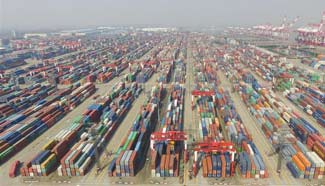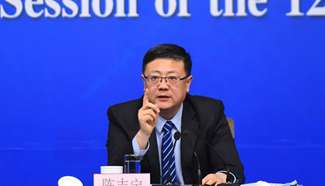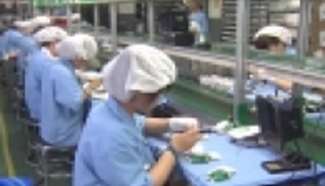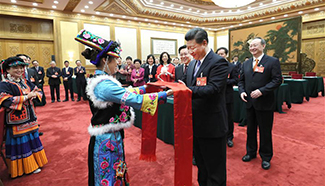by Peter Mertz
LAS VEGAS, the United States, March 9 (Xinhua) -- A decade ago, China's Sany Heavy Equipment Company was barely on the radar as a global construction equipment manufacturer.
In 2004, the Changsha-based company was ranked the 43rd in the world in equipment sales, according to China Construction Business website.
And despite the construction boom of the 1990s, China's heavy equipment manufacturers had a mere 1.6 percent global market share, worth just 841 million U.S. dollars by the end of the millennium.
But by 2011, that market share climbed to 16 percent and was worth 30.6 billion U.S. dollars, according to ForConstructionPros.com.
Sany had nudged its way into the No. 6 spot past American giants John Deere and Terex, and right behind were Chinese companies Zoomlion and XCMG. The Chinese were on a roll.
"Our projections for 2017 show us doubling U.S. sales from 50 million U.S. dollars to 100 million," Wan Chun Zhou, Sany's General Manager, told Xinhua Wednesday here at the 2017 ConExpo show, the world largest equipment show of the year.
During the past weak years due to global economic stagnation, Chinese construction heavyweights turned to Plan B.
The first to anticipate the market drop was Zoomlion, which bought Italy's concrete giant CIFA in 2008 for 422 million dollars.
In 2012, China's other two equipment leaders followed suit: Sany bought Germany's Putzmeister for 472 million U.S. dollars, and XCMG acquired German equipment manufacturer Schwing.
"There was still a technological gap between China and Europe, and the CIFA acquisition was a key development for Chinese industry," Zoomlion Vice-President Yanming Xiong told Xinhua.
Zoomlion's move solidified the company's long-term goal "to enter the high-end markets of the U.S. and Europe," Xiong said.
Meanwhile, Sany was busy with an alternative approach toward penetrating lucrative western markets.
In 2007, Sany broke ground on a 400,000 square-foot manufacturing facility in Peachtree City, Georgia, that today not only assembles excavators, but also supports the 60 distributorships and dealers it had recruited to sell its machines.
Most importantly, Sany is employing 100 American workers, and not outsourcing the labor back to China.
"They are smart to copy the Japanese model," said Benjamin Austin, 65, a 40-year veteran of the construction equipment industry.
Austin, who runs a heavy equipment company in Draper, Utah, thought the key to Japan's success in the American market was basing plants on U.S. soil that hire Americans.
"That diminishes the appearance of outsourcing American jobs, that has never been more critical toward business success than it is now," Austin added.
Beneath the hot sun and Nevada desert heat, Austin pointed to the thousands of pieces of heavy equipment covering 2,500,000 square feet of space and said, "it all boils down to one thing: dependability."
Both Zoomlion and Sany follow one, same roadmap carefully -- the need to follow and adopt local laws and technical standards, including emissions controls.
"For this market, many strict standards could be a barrier to Chinese companies, but they are catching up with them, very fast," Doug Peyton, a dealer from California told Xinhua.












